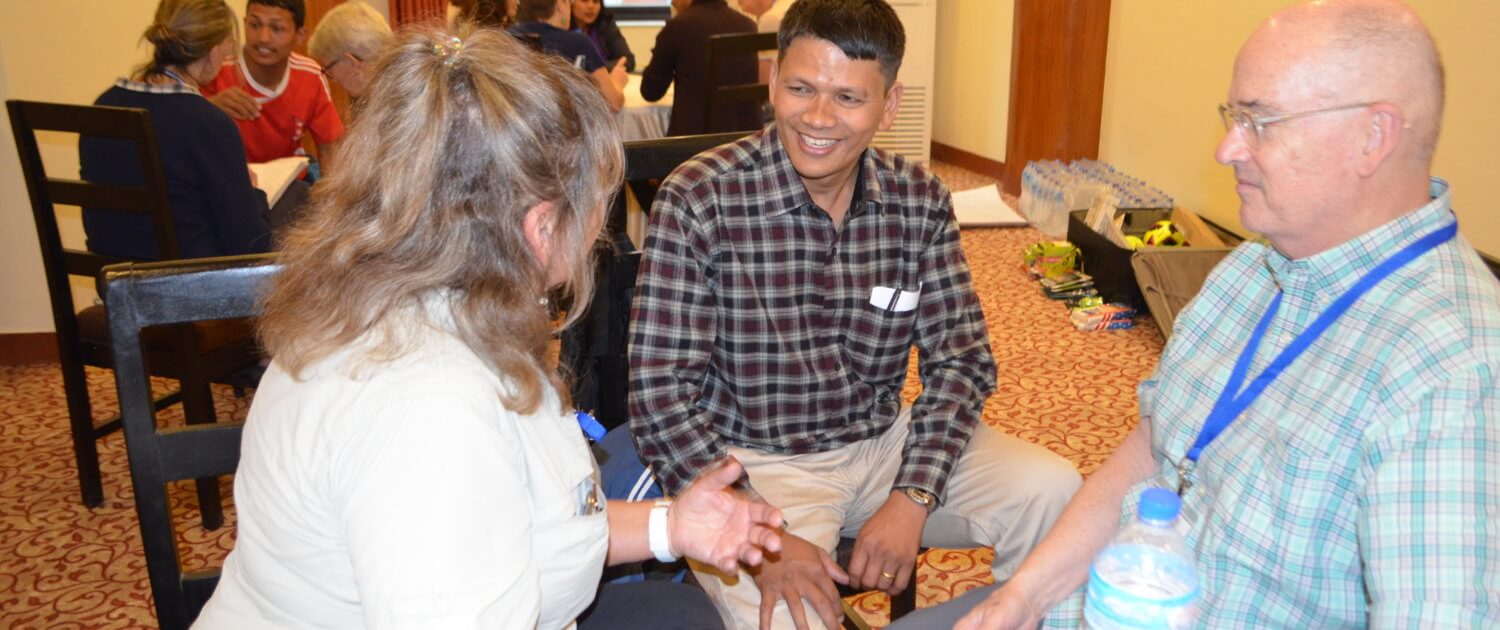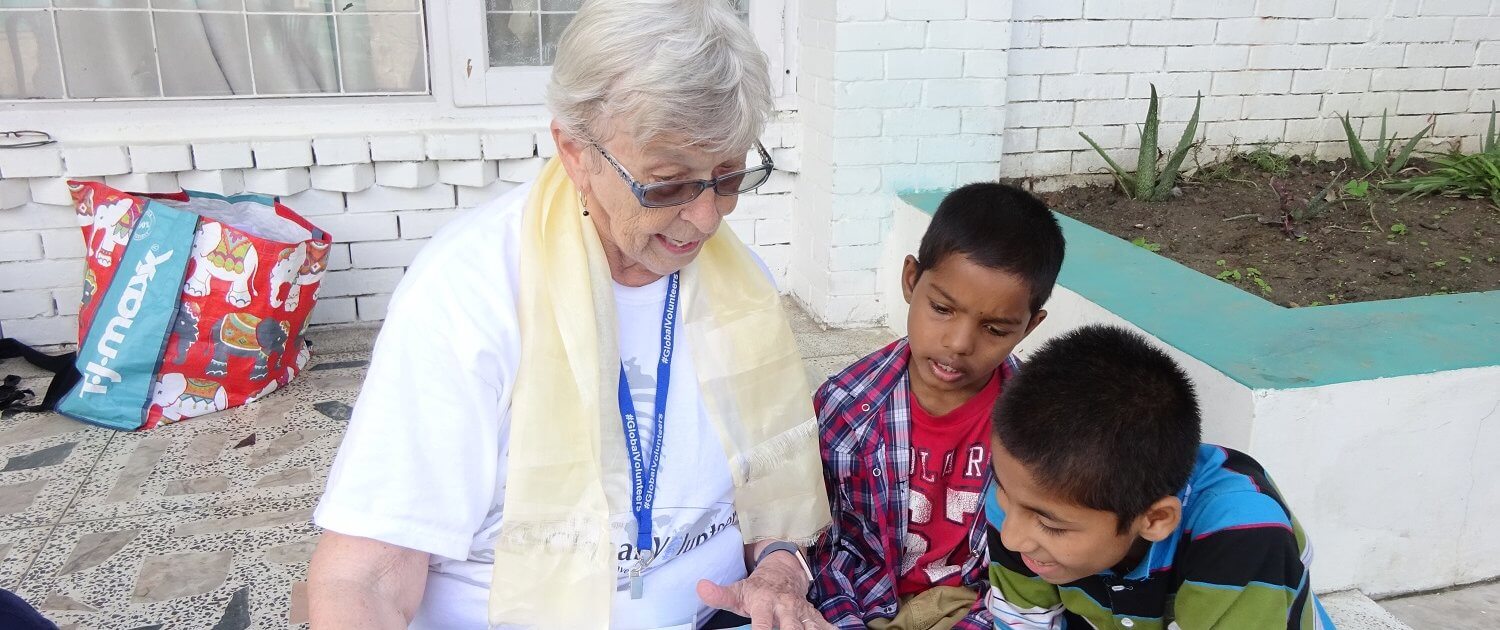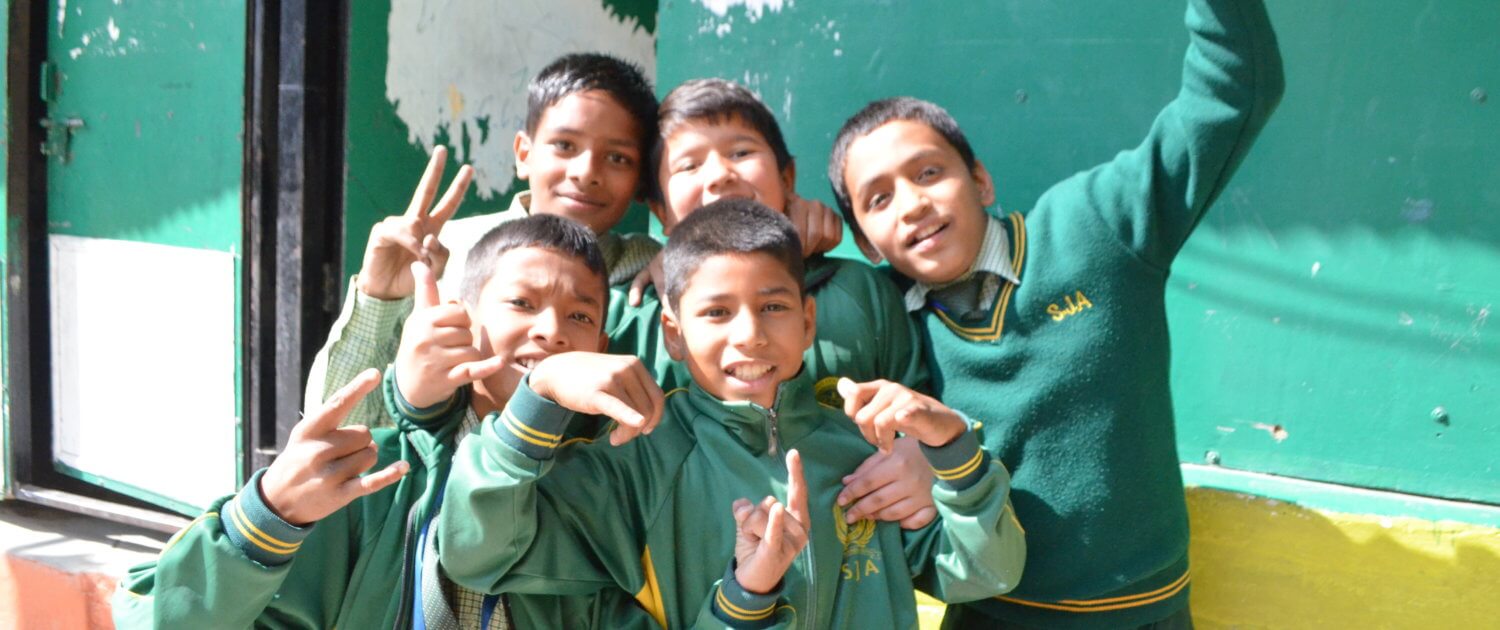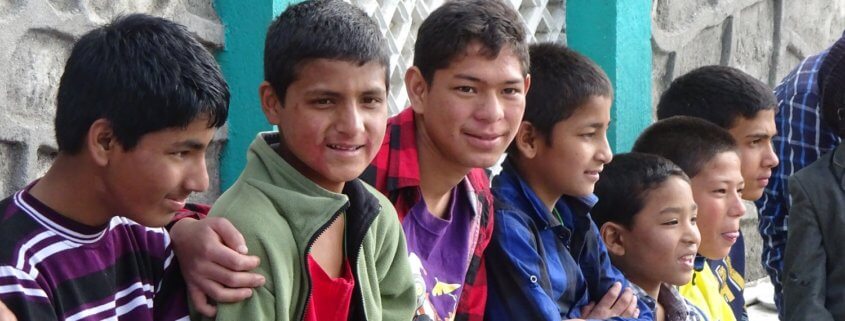Nepal Community Partner Prepares Children for Productive Future
Buddhi Man Seresta, founder of Papa’s House orphanage and pastor of Fresh Fire Church in Kathmandu, had a difficult time growing up without his father. Yet, the love and care he received from his mother impressed on him his advantages – which thousands of children without parents lacked. As he grew up, he transformed his personal suffering and gratitude into a quest to mentor abandoned and homeless children. The result is Papa’s House orphanage, one of Global Volunteers’ service sites in Kathmandu. The charity’s director, Leona Grant, joins Buddhi Man in describing the organization’s nurturing vision in this online interview.
What are the circumstances of the children you bring to Papa’s House?
In Nepal, many children are orphaned when parents die from sickness and disease, and they often have to find ways to fend for themselves. Many children live on the streets of Kathmandu or out in the villages. Some children are simply abandoned at birth. Papa’s House was established in 2016 to provide a family environment for children to experience the safety, shelter, love, grace, mercy, restoration and empowerment that comes from a spiritual environment.

Why are children’s homes necessary in Nepal?
If they didn’t have these orphanages, they would go directly to the streets. They don’t have any other alternative here in Nepal. In a children’s home, they will receive a good education and they will expand their knowledge, learning about different cultures and international education. Due to existing disabilities, family conflict and poverty, orphaned children are compelled to live in institutional care. However, it should be the shortest possible duration for them, and they should be taught to live on their own when they reach adulthood.
The status of the children – whether they are poor, disabled, homeless or neglected – determine how they can be properly guided by the children’s home staff, who can groom them and enable their development. So, children’s homes could be an appropriate alternative to living on the street.

The U.S. Department of State’s 2018 Trafficking in Persons report says unscrupulous institutions promise food, education or a better life to convince parents to turn over their children, especially those with disabilities, to attract international donations and volunteers. How do you respond to that?
Yes, both the scrupulous and unscrupulous institutions exist. It is necessary to identify in which it falls before donating or supporting. The organization must be registered as per the rules of the government of the country. The financial transactions should be done through the bank account of the organization, expenditure details of the money should be provided to the funding organization.

How have volunteers supported children at Papa’s House?
It has become an opportunity for the children to have interaction with people from different fields and professions. Sharing their experiences with children benefits them in their future, and exposes them to lots of views, opinions and ideas. This is very valuable, and can’t be purchased with money. So, volunteers are required to supply this to us.
The United Nations’ Convention on the Rights of the Child declares that every child has the right to grow up in a family environment, and that institutional care should be a temporary “last resort” for the “shortest possible duration.” How do you respond to that?
Yes, we agree with the statement and have no any arguments regarding this. In Nepal, we don’t have any advisories about this.

Could you tell me a little bit about your experience raising children from the villages? How do you learn about the children who come to live with you?
The children who live at Papa’s House have been victims of natural disasters such as floods, landslides, soil erosion, earthquakes and fires. They have been rescued by the recommendation of the municipality and the federal government. In other cases, orphans and children who have disabilities, are living in poverty, or are living in unstable environments are rescued during the field visit with recommendation of the concerned authority. Their cases are referred by a church member, the municipality or friends.
Are they referred by Fresh Fire Church members? What is the longest time a child can stay with you?
As per our practice, we search for their family, relatives and neighbors with the help of the government. If not found, they will be under our care. It is our responsibility to make them stand on their own two feet. We want the children to be with us and hope to get help from them in our work and keep in touch with us. Rescuing girls is our first priority; however, orphan girls are often kept by their relatives to do household chores. We were recently successful in rescuing a girl when we were rescuing a boy from the same family. There is no limit to the time that a child can live with us.
How do you prepare them to live independently when they become adults?
Education is a never-ending process. Children are supported until they want to get education. They are encouraged to take vocational training seminars about different field of jobs and which ones are easier to be employed in. Unless they are able to stand on their own, we need to look after them. We want them to keep in touch and help us in their leisure time.
You may also be interested in:




Leave a Reply
Want to join the discussion?Feel free to contribute!